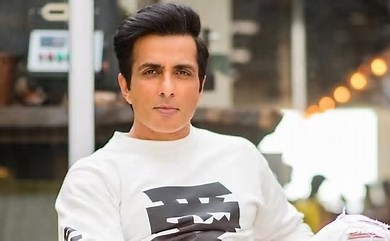
Introduction
Table of Contents
Sonu Sood, a well-known Bollywood actor and humanitarian, has made headlines once again by urging the Indian government to bring back Indians stranded in Bangladesh. This call to action reflects Sood’s ongoing commitment to helping those in need, a role he has embraced wholeheartedly, especially since the COVID-19 pandemic. His appeal underscores the broader issue of the welfare of Indian citizens abroad and the responsibilities of the government in ensuring their safe return during crises.
Sonu Sood: The Humanitarian Hero
Sonu Sood has always been more than just an actor. He gained widespread recognition for his philanthropic efforts during the COVID-19 lockdowns in India, where he organized transport for thousands of migrant workers to return to their homes. His tireless work earned him the moniker of a real-life hero, demonstrating his dedication to social causes and the welfare of his fellow citizens.
The Plight of Indians in Bangladesh
The current situation concerning Indians in Bangladesh is complex. Many Indians travel to neighboring countries like Bangladesh for various reasons, including work, education, and tourism. However, unforeseen circumstances such as political instability, natural disasters, or health crises can leave them stranded and vulnerable. Recently, several reports have highlighted the difficulties faced by Indians in Bangladesh, including financial hardships, lack of access to medical facilities, and administrative hurdles in returning home.
Sonu Sood’s Appeal
Sonu Sood’s recent appeal to the Indian government emphasizes the urgent need to address the plight of these stranded Indians. He has used his platform to draw attention to their struggles, advocating for a coordinated effort to facilitate their safe and swift return. Sood’s call is a powerful reminder of the interconnectedness of the Indian diaspora and the importance of governmental support in times of crisis.
The Role of Social Media
Sood has effectively used social media to amplify his message. By sharing personal stories and urgent appeals on platforms like Twitter and Instagram, he has managed to reach a broad audience and generate significant public support. His posts often highlight individual cases, providing a human face to the larger issue and rallying his followers to support his cause.
Governmental Response and Challenges
The Indian government has previously undertaken large-scale repatriation efforts, notably during the initial phases of the COVID-19 pandemic under the Vande Bharat Mission. These operations require meticulous planning, coordination with foreign governments, and significant logistical support. Sood’s appeal aims to prompt a similar response for those currently in Bangladesh.
Diplomatic Efforts
Addressing the issue requires robust diplomatic engagement between India and Bangladesh. Ensuring the safe return of Indian citizens involves negotiations at multiple levels, including immigration policies, travel restrictions, and health protocols, especially in the wake of the pandemic. Strengthening these diplomatic channels is crucial for effective and timely repatriation.
Logistical Considerations
The logistics of repatriation are complex and multifaceted. Coordinating transport, securing necessary travel documents, ensuring compliance with health and safety regulations, and providing financial and medical assistance are just a few of the challenges involved. The government’s ability to mobilize resources quickly and efficiently is critical in these operations.
Public and Media Support
Public opinion and media coverage play vital roles in humanitarian efforts. Sonu Sood’s appeal has garnered significant attention, with media outlets covering the stories of stranded Indians and amplifying their calls for help. Public support can influence governmental action, as widespread concern often prompts faster and more comprehensive responses from authorities.
The Power of Celebrity Advocacy
Celebrities like Sonu Sood have a unique ability to draw attention to important issues. Their influence can mobilize public support and apply pressure on authorities to act. Sood’s advocacy has not only highlighted the immediate need for action but also inspired others to contribute to the cause, demonstrating the power of collective effort in addressing humanitarian crises.
Broader Implications for Diaspora Policies
Sood’s appeal also raises broader questions about India’s policies towards its diaspora. Ensuring the welfare of Indians abroad is a complex and ongoing responsibility. The government must continuously evaluate and improve its strategies to support its citizens, particularly in times of crisis.
Strengthening Support Systems
Developing robust support systems for Indians abroad is essential. This includes establishing clear channels of communication, providing consular assistance, and ensuring access to financial and medical aid. Building stronger networks between the diaspora and Indian missions abroad can enhance the effectiveness of these support systems.
Future Preparedness
The current situation underscores the need for future preparedness. Developing contingency plans for repatriation, strengthening diplomatic ties, and improving coordination between various governmental agencies can help mitigate the impact of future crises on Indian citizens abroad. Proactive measures can ensure that the government is better equipped to respond swiftly and effectively to any emergencies.
Conclusion
Sonu Sood’s call for the Indian government to bring back Indians stranded in Bangladesh highlights a critical humanitarian issue. His advocacy reflects his deep commitment to the welfare of his fellow citizens and underscores the importance of government intervention in ensuring the safety and well-being of Indians abroad. As public and media support grows, it is hoped that the government will respond promptly and effectively, reaffirming its commitment to the diaspora and addressing the immediate needs of those in distress.







